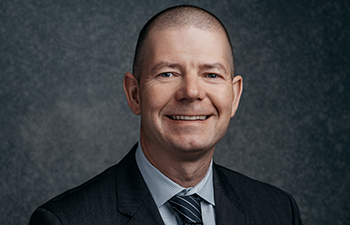President's Letter
Dear Members:
The value of PFSP
Much like our colleagues on the frontlines everywhere, feelings of distress are common amongst physicians. The reasons for this are multi-faceted, but the great uncertainty in our environment is playing a significant role. As evidence of this, our own Physician and Family Support Program has seen a sharp increase in calls related to anxiety, stress and depression. This is unfortunate, but we are proud that physicians are reaching out for help when they need it. A healthy society requires healthy doctors and we all should be concerned about the individual toll on our physicians and the strong link between physician wellness and quality of care.
Last week, the Minister stated that the PFSP will continue in its current form, delivered by the Alberta Medical Association, through 2021-22. This clarity is welcome, and the time provided is helpful as constructive discussions continue with government toward a new agreement. This commitment to physician health is appreciated and needed now more than ever.
As always, PFSP is there for physicians, residents and medical students if and when you need it.
1-877-SOS-4MDS (767-4637)
CONFIDENTIAL 24 hours a day/7 days a week/365 days a year
Staying well
Our current environment would have been unimaginable not so long ago. For physicians, certain fundamental needs are not being met and many feel unsafe. Alongside our frontline colleagues, we are vulnerable to COVID-19 exposure as we care for the sick, and are put at further risk when those around us don’t wear masks or follow other public health orders. Events this past year have made us more aware of the risk of violence in our workplaces, and this adds intensity to concerns about how we protect ourselves, our teams and our patients.
To help the AMA understand member needs and identify additional offerings that might be of value, the AMA is in contact with Dr. Nicola Cherry from the University of Alberta, who is the lead investigator on a study about the impact of COVID-19 on the health of Alberta physicians. We look forward to having that information and sharing it with you when it becomes available. In the meantime, I want to remind you that we care about you and there are programs available to support you in staying well.
The AMA collaborates with Well Doc Alberta, a program focused on education and prevention and supported by the science of physician wellness. Well Doc Alberta is working with interested groups of physicians (e.g., divisions, departments, community physicians, rural physicians) to develop and train formal physician-to-physician peer support teams. You can reach them at welldocalberta@ucalgary.ca. They also have many education resources available, including podcasts on topics relevant to today’s challenges such as Wellness on the Front Lines of a Pandemic.
We will continue to promote Well Doc Alberta’s education resources so that you have easy access to this incredible program. Well Doc Alberta is funded through the combined support of Scotiabank, MD Financial Management and the Canadian Medical Association, with AMA assistance in securing this sponsorship.
Advocacy wherever it is needed
I have written in previous letters regarding the care deficit that is building due to COVID-19 and arising as a shadow pandemic. Physicians and our health care teams have been doing what we can to keep patients moving through the system, but unfortunately diseases and conditions are going undiagnosed and many treatments are being delayed. This has implications for the health of Albertans and will tax the system at a time when we are least equipped to deal with it. Secondary effects of the pandemic and lockdowns extend beyond this, however.
Physician colleagues and other advocates have been raising the alarm over increasing mental health and addiction issues in the community. The isolation and disruption that everyone has faced due to COVID has been particularly difficult for a fragile segment of the population; one that was already ravaged by opioid addiction and overdose deaths. Latest data from the Alberta government indicates that between July and October 2020 alone, 449 Albertans died from apparent unintentional opioid poisoning. Debate around the opioid crisis has been polarizing. What is clear is that solutions should be evidence based, involve all levels of government and include meaningful community engagement in order to be effective.
As we grapple with this issue, it’s worth noting that government has provided a new tool for increased access to Substance use surveillance data through an open platform that reports the prescribing patterns, use/misuse, drug overdoses and deaths related to fentanyl and opioids in Alberta. Good information is part of the way forward, but we will need further advocacy to support this particularly vulnerable population.
The CanMEDS framework, from the Royal College of Physicians and Surgeons of Canada, specifies that physicians are expected to serve the role of health advocates, contributing expertise and influence with communities or patient populations to improve health. The profession serves through advocacy – whether in the hospital, community clinics or even on the street. We work with those we serve to understand their needs, speak on their behalf when required and support the mobilization of resources to effect change. Each perspective has value and the professional respect we extend to each other in this time is crucial. It is time for us to share our deepest empathy for each other.
As always, I welcome your thoughts and comments. Please reach me in one of the following ways:
- Communicate with me privately and directly by email if you would like a reply: president
@albertadoctors .org - Comment publicly on this President’s Letter on the AMA website (please be aware that comments are public, i.e., not members-only, even if you are logged in as a member).
Sincerely,
Paul E. Boucher, MD, FRCPC
President, Alberta Medical Association
